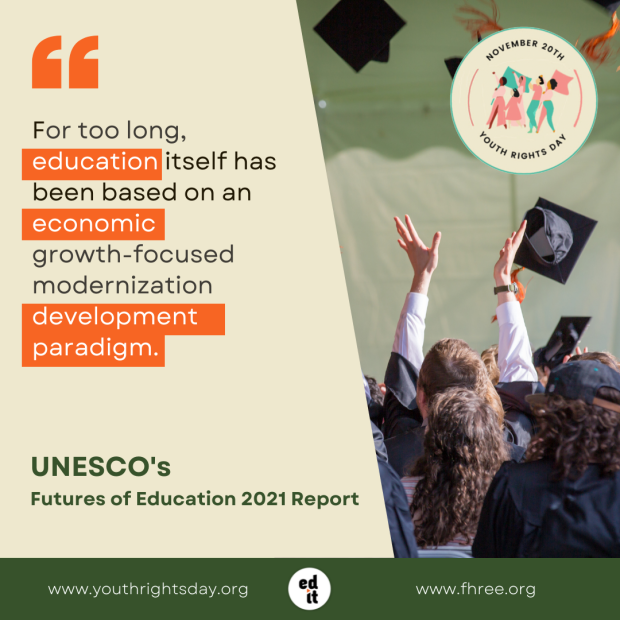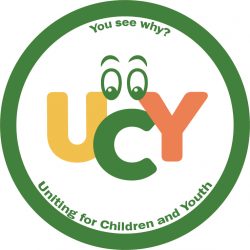A Time for Robust Conversations
The following are topics that are considered when re-imagining education for the digital age. They are offered as conversation starters for a city-wide dialogue about the aims and objectives of education. We ask that everyone who sees the need for change becomes a part of that change.
1. UNESCO recently released its much anticipated report on the future of education. FHREE (Full Human Rights-Experience Education) helps people to digest it with 159 quotes for radical change.

2. Mental Health: The Ottawa branch of the Canadian Mental Health Association has at the top of its list of core values social justice and self-determination. This has led to the formula:
Mental Health = Social Justice + Self-Determination
The state of world democracies and the mental health of young people are concerns shining a spotlight on the failings of our autocratic school systems. We are in need of conversations about the benefits of democratic learning environments and how to provide them for those who would welcome an opportunity to try them out within their community schools. Democratic schools are not new, and they all tend to be a little different depending on the communities they serve. School Circles is a documentary film that gives a taste of what life is like in these schools. Yaacov Hecht was the first person to name a school “democratic”. He has initiated the establishment of about 30 publicly funded democratic schools in Israel and he is now working on a vision for Tel Aviv of an ecosystem of community learners. His vision draws from the book Happy City by Canadian author Chris Montgomery.


3. Voting Age: Another relevant happening is that 13 young Canadians ranging in age between 12 to 18 filed a court challenge on December 1, 2021 to lower the federal voting age calling the current one unconstitutional. CBC ran a storyon the challenge. For more on the topic, Professor John Wall of Rutger University has just published a book titled Give Children the Vote. The Children’s Voting Colloquium is a place to learn the latest on the issue. Groups such as Student Voice and Fridays for Future are demanding to be included in decisions that affect them. An important consideration leading up to the elections is how to include children and youth in the municipal elections in a way that they feel their concerns are being addressed.
4. A Time Between Worlds: This is a time when decisions need to be based, not on what has been, but rather on what will be. One dimension of this is the call for young people to become adept with the 6Cs, but our conversations also need to be informed by the work of Zak Stein, author of Education in a Time Between Worlds.
The Impossible Train Story, told in this short video, expresses some of the urgency for us to get things right.

The following message conveyed through the documentary film Schooling the World is also relevant to school board elections at this time:
If you want to change a culture in a single generation,
you have to change how young people get their education.
5. The Ken Robinson legacy
Ken Robinson was perhaps the most influential educator of our time and he had the distinction of producing the most watched TED Talk of all time. His daughter Kate is carrying on his work with the publication of Ken’s Manifesto which becomes available in March. It is anticipated that it will spark many conversations. For more information and to pre-order it, visit https://www.sirkenrobinson.com. People are encouraged to familiarize themselves with Ken’s work. The links at the right are to some of the significant videos he has created.

Small sample of Ken’s videos:
1. My Thought on the Call to Unite
2. Changing Education Paradigm
3. Do schools kill creativity
6. Additional Topics for Consideration
- Zineb Mouhyi: Why Young People Should Design the Future of Education
- Larry Rosenstock: High Tech High and Beyond Measure – The formally scheduled school day is the single greatest impediment to educational innovation.
- Justin Reich and Peter Senge: If you wait until you have answers to all the problems, you will never get started. (MIT Teaching Systems Lab)
7. Progressive Education
For a comprehensive website on education, visit progressive education.org. It is the work of a mother, Jo Symes, who sent her two boys to school because that is what parents do, and then she discovered that she should not have been so trusting.

